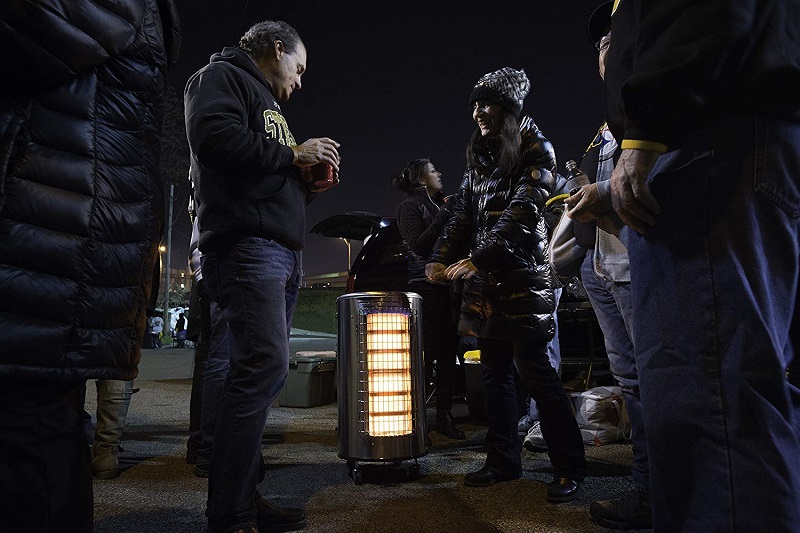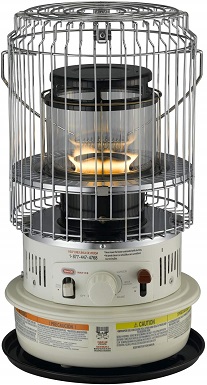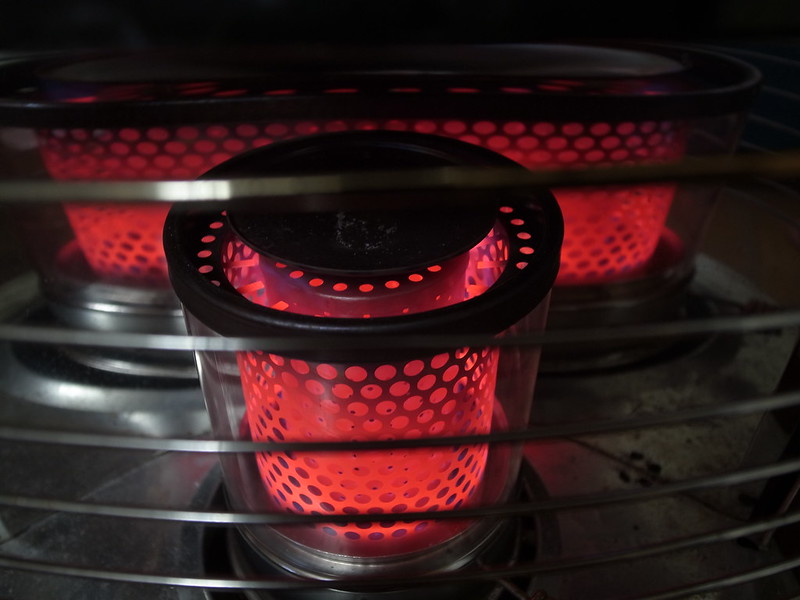Kerosene vs. Propane Heaters: Which To Choose?
Last Updated on December 11, 2021

Having an electric space heater is fairly common in regions that experience all four seasons. If you mention kerosene and propane heaters, most people think, “Why would I get one of those when I have a perfectly good electric space heater?”
Well, what if the power goes out? Your electric space heater will be worthless. While they work great to supplement your normal heat, they are not going to be effective during a blackout. That’s where kerosene and propane heaters come into play.
With that thought in mind, we have looked at both options and broken it down into effectiveness, storage, dangers, and other categories that will help you choose which one is best for you. Don’t get left in cold again. Read on to hear the verdict.
Propane Heaters

Propane Heater, Credits: Mr Heater MH18B, Amazon
General Use And Effectiveness
Propane heaters are easy to use and don’t require much effort except for a push of a button. A propane heater is adequate, but it is not as good as a kerosene heater. When it comes to heating, you want to look at BTUs. This is going to tell you how much heat you are getting per dollar.
Propane has a better BTU rating than oil or electricity, but not quite as high as kerosene. This equates to higher costs of operation. On the other hand, it will heat a large size room with little effort. The only drawback is that it can take time for the heat to circulate the room.
When it comes to energy-efficiency, propane is a clean gas that leaves little to no carbon footprint. You also will not have a lot of maintenance or cleaning with a propane heater since it burns cleanly.

Propane Heater, Credits: Mr Heater MH18B, Amazon
Fuel And Storage
Propane is pretty easy to come by. As many people use it for grills and other things, you can find it at home good stores, or even have it delivered to your home in bulk. With that being said, you will need a safe place to store your propane. The more you purchase at one time, the less money it will cost.
If you are using the small grill containers to store propane, you will be safe, but they will not last long if you are trying to heat your home when the power is out. If you want to store larger quantities, you will have to have a propane tank. These large and cumbersome metal tanks can be quite expensive even for used ones.
Another point to keep in mind is that propane does need to be circulated and treated if it is going to be kept in a container for long periods. Also, smaller tanks can take up a lot of space while larger tanks can be unsightly.
Dangers and Maintenance
As mentioned, propane does need to be safely stored in a tank that will keep it from exploding. Propane is a flammable gas that can ignite under the right circumstances. A second-hand large yard tank can cost upwards of $800 dollars, and you can’t always be sure it’s in good condition.
The maintenance of propane heaters is limited. They should be dusted every so often, but in general, there is not a lot to clean. You want to watch out for the effectiveness of the heat. If it starts to not work properly, you need to have it looked at by a professional—or swap it out for a new one entirely.
- Cleaner to run
- Cost efficient
- Easier to obtain
- Controlled temperature
- Harder to store
- Less BTUs
- More dangerous
Kerosene Heaters

Kerosene Heater, Image credit: Dyna-Glo WK11C8, Amazon
General Use And Effectiveness
Kerosene is also a very efficient way to heat your home during a power outage. Kerosene generally heats the space quicker than a propane heater, but once it’s off, the space will cool down just as fast.
Temperature control is possible with a propane heater, but not so with kerosene. While kerosene is just as effective at heating large spaces, there is no way to control the temp except to turn the unit off.
Also, kerosene heaters do require a flint to be lit for the heater to work. Due to that, there can be quite a bit of ash that needs to be cleaned up regularly. The ashes can float through the air and make the home a bit sootier than it would be if you were using a propane heater.

Kerosene Heater, Credits: Toshyuki IMAI, Flickr
Fuel And Storage
Depending on your location, kerosene can be more difficult to come by. Not every home improvement store is going to carry it, nor will you be likely to have it delivered. The best bet is to check around for gas stations that carry kerosene so you can keep yourself stocked up in case of an emergency.
Kerosene is easier to store than propane. It can generally be kept in large oil drums or smaller metal containers. Kerosene also lasts a lot longer without needing any kind of maintenance performed. Though you may have a harder time finding it, you will be able to store it more cost-effectively and with less effort on your part.
Dangers and Maintenance
Because kerosene isn’t flammable, it’s a lot safer to store than propane. For the kerosene to ignite, you need to have a wick. If you were to toss in a lit match, nothing would happen (though we do not recommend trying that out).
Maintenance is another story. As you do have to have the wick, the ash and debris will start to clog up the heater. It will need to be cleaned out often to run correctly. If it is kept in good repair, a kerosene heater can last longer than a propane heater.
- Cost-efficient
- Cleaner to run
- Heats quicker
- Easier to store
- Harder to obtain
- No temperature control
- Messy to use
The Cost Difference Between Kerosene and Propane
Here is where the situation gets a little tricky. The cost difference between the two can vary from day to day and based on your location. Propane can be the more affordable choice on the East Coast of the United States, while kerosene is the better option on the West Coast.
Your best bet is to look at the average cost over the last year. You also want to take into availability and storage into consideration, in addition to the cost. Finally, as we mentioned above, you want to look into the BTU rating for both. This will tell you how much heat you are getting for your money. Though kerosene may be slightly higher in upfront cost, it may be the more cost-efficient option in the long run.
Conclusion
Both kerosene and propane heaters are two good options to heat your home when the weather shuts down the power. We hope this guide has given you some knowledge of the difference between the two and helped you figure out which option is best suited for your home.
Written By Shannon MacDevine
Featured image credit: Thermablaster 32,000 BTU Infrared Cabinet Heater One Size Brushed Stainless Steel, Amazon
